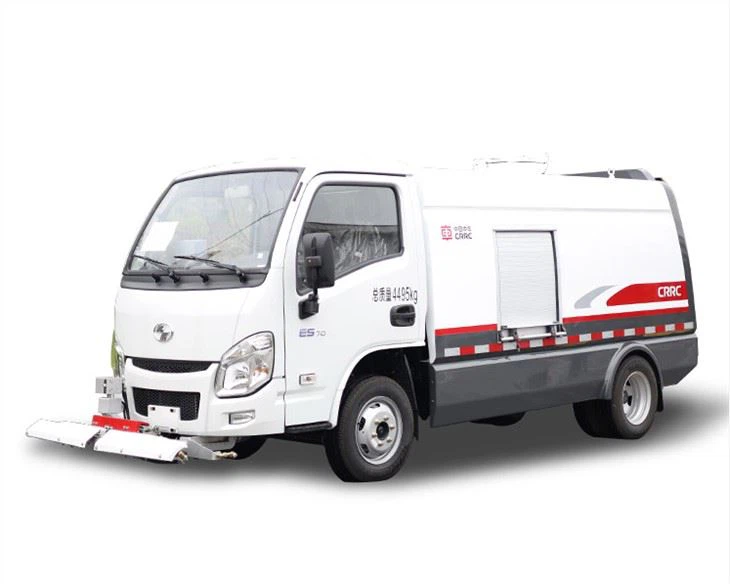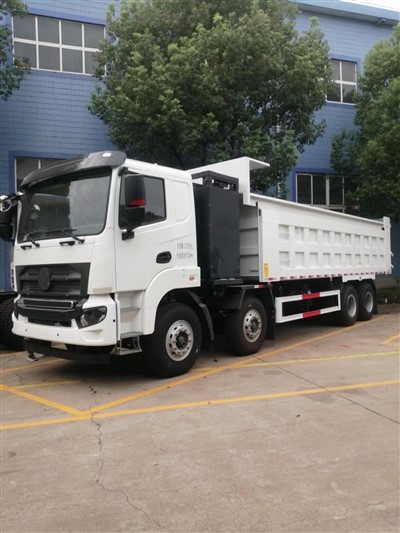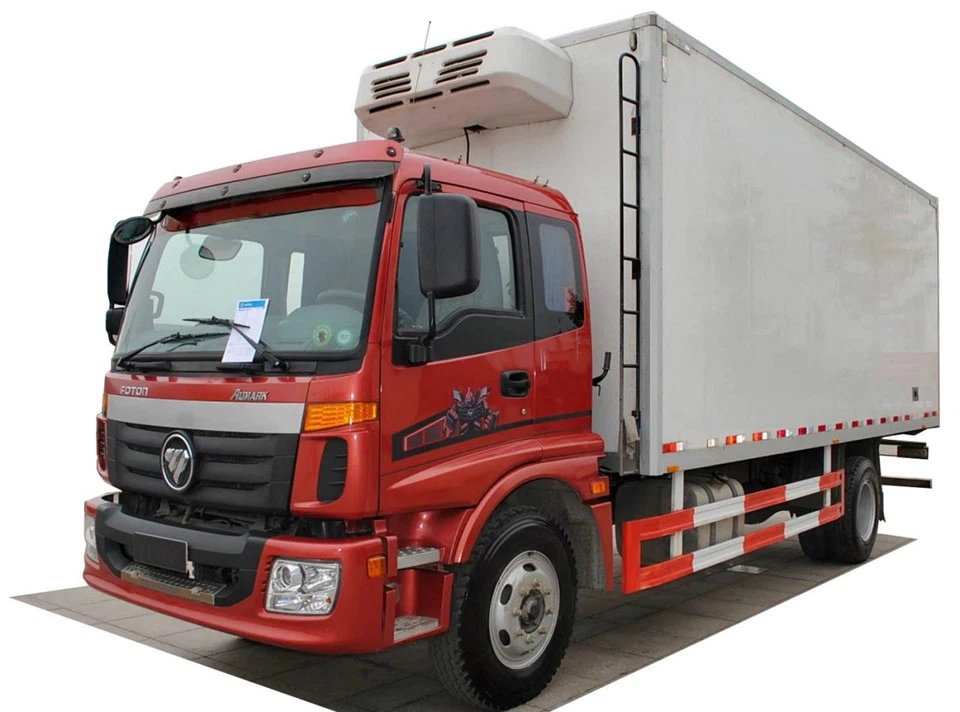Ultimate Guide to Buy Trash Truck: Everything You Need to Know

Buying a trash truck is a significant investment for waste management companies, municipalities, and industrial operations. Understanding the features, costs, financing options, and maintenance needs can help you make an informed decision. This comprehensive guide will cover everything you need to consider when you decide to buy a trash truck.
Understanding Trash Trucks
Trash trucks are specialized vehicles designed to collect and transport waste. They come in various sizes, types, and configurations, depending on the specific waste management needs.
Types of Trash Trucks
There are different types of trash trucks, each suited to specific applications:
- Rear Loader: Ideal for residential waste, these trucks collect waste from curbside bins and compact it.
- Front Loader: These trucks are used for commercial waste, equipped with forks to lift and empty dumpsters.
- SIDE Loader: These trucks can operate with minimal driver intervention, often used for automated waste collection.
- Specialized Trucks: Some trucks are designed for recycling or organic waste and come with specialized compartments.
Key Features of Trash Trucks
When selecting a trash truck, it is essential to consider the following features:
- Compaction System: Determines how effectively waste is compressed.
- Capacity: The total weight and volume of waste the truck can handle.
- Durability: Construction materials and build quality are critical for longevity.
- Safety Features: Cameras, sensors, and alarms that enhance safety during operations.
- Fuel Efficiency: The type of engine and fuel arrangement affects operational costs.
Budgeting for Your Trash Truck Purchase
The cost of buying a trash truck can vary dramatically based on numerous factors, including type, brand, and new vs. used condition.
Average Costs
Here is a breakdown of average costs based on truck types:
| Truck Type | Average Price |
|---|---|
| Rear Loader | $150,000 – $250,000 |
| Front Loader | $180,000 – $300,000 |
| Side Loader | $200,000 – $350,000 |
| Specialized Trucks | $250,000 – $500,000 |
Financing Options
When buying a trash truck, you have several financing options to consider:
- Loans: Explore traditional loans through banks or credit unions.
- Leasing: A lease can reduce monthly payments but limits ownership.
- Government Grants: Some municipalities provide financial assistance for waste management purchases.
Budgeting Tips
Here are a few practical tips for budgeting your purchase:
- Determine your specific needs to avoid overspending on unnecessary features.
- Research multiple vendors to compare prices and financing options.
- Consider the total cost of ownership, including maintenance and fuel efficiency.
Choosing the Right Dealer
Finding the right dealer can significantly influence your buying experience. Here are some things to consider:
Reputation
Research potential dealers through online reviews and testimonials. Look for those with a track record of excellent customer service and support.
After-Sales Support
Consider dealers that offer warranties, service packages, and parts availability. A good after-sales support system can save you ongoing maintenance costs.
Customization Options
Some dealers offer customization to fit your unique waste management needs. Ask about the availability of tailored add-ons and configurations.
New vs. Used Trash Trucks
Deciding between new and used trash trucks can impact your budget and operational efficiency.
Pros and Cons of New Trash Trucks
Pros:
- Latest technology and eco-friendly options.
- Better warranty and financing options.
- Custom features and specifications available.
Cons:
- Higher initial cost than used options.
- Depreciation begins immediately.
Pros and Cons of Used Trash Trucks
Pros:
- Lower upfront costs.
- Less depreciation impact.
- Established performance records.
Cons:
- Higher potential for maintenance issues.
- Limited or no warranty options.
Understanding Regulations and Compliance
Before purchasing a trash truck, ensure you understand the relevant local, state, and federal regulations regarding waste management vehicles.
Licensing and Permits
Check if you need specific licenses or permits to operate trash trucks in your area. This includes commercial driver’s licenses (CDLs) for your operators.
Environmental Regulations
Be aware of any requirements related to emissions and environmental impact. Invest in eco-friendly options that meet or exceed these regulations.
Maintenance Considerations
Proper maintenance extends the life of your trash truck and ensures efficient operation.
Regular Inspections
Create a maintenance schedule that includes regular inspections of brakes, tires, belts, and hydraulic systems. Keeping records of maintenance helps in evaluating performance.
Common Maintenance Tips
Follow these tips to maintain your trash truck:
- Perform oil changes every 5,000 to 7,500 miles.
- Check and maintain tire pressure regularly.
- Keep the body and containers clean to prevent rust and corrosion.
How to Buy a Trash Truck: Step-by-Step Process
Buying a trash truck involves a series of steps. Here’s a simplified process:
Step 1: Define Your Needs
Assess your waste management requirements including volume, type of waste, and collection frequency.

Step 2: Budget Planning
Create a comprehensive budget, including purchase price, operational, and maintenance costs.
Step 3: Research and Compare
Research various makes and models, then compare features and prices across different dealers.
Step 4: Test Drive
Arrange a test drive to experience the vehicle’s comfort, operation, and any technology features.
Step 5: Negotiate Terms
Negotiate the price, warranty, and financing options with the dealer.
Step 6: Finalize Purchase
Review all documentation thoroughly before signing for your new or used trash truck.
Frequently Asked Questions
1. What is the lifespan of a trash truck?

The average lifespan of a trash truck ranges between 10 to 15 years, depending on maintenance and usage.
2. How often should a trash truck be serviced?
It is advisable to have regular inspections every 2,500 miles or at least every six months.
3. Can I finance a used trash truck?
Yes, there are financing options available for both new and used trash trucks. Contact your dealer or bank for details.
4. What should I look for when inspecting a used trash truck?
Check for wear and tear, engine performance, hydraulic system functionality, and the condition of the truck’s body and tires.

5. Are there government grants for buying trash trucks?
Some municipalities and environmental programs offer grants or subsidies for purchasing eco-friendly waste management vehicles.
6. What are the most eco-friendly options available?
Consider electric or hybrid trash trucks which offer lower emissions and may qualify for incentives.
